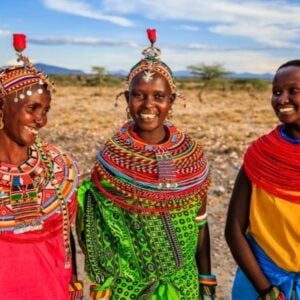A diverse coalition of stakeholders from Nigeria’s agriculture sector convened in Lagos for the National Stakeholders Consultative Meeting on the 2026 Agriculture Budget, emphasizing the urgent need for transformative reforms in agricultural financing and policy implementation. The three-day summit drew over 130 participants, including representatives from government bodies, civil society, academia, donor agencies, and farming communities, who collectively highlighted Nigeria’s escalating food crisis and called for systemic change.
The event was co-organized by ActionAid Nigeria, the Federal Ministries of Agriculture and Food Security and Budget and Economic Planning, GIZ’s AgSys Nigeria, and the ECOWAS Commission. Discussions centered around aligning Nigeria’s 2026 agriculture budget with regional and international frameworks such as the National Agricultural Technology and Innovation Policy (NATIP), the 2025 Kampala Declaration, and the Comprehensive Africa Agriculture Development Programme (CAADP). Stakeholders expressed concern over the sector’s chronic underfunding—just 4.2% of the national budget in 2024 and a mere 1.2% in 2025—despite the 10% investment target under the Maputo and Malabo Declarations.
Participants warned that the consequences of such budgetary neglect are dire, with over 30 million Nigerians expected to face acute food and nutrition insecurity. Insecurity—ranging from terrorism to farmer-herder conflicts—continues to devastate farming communities, while climate change has intensified the problem. Between 2022 and 2024, Nigeria witnessed severe flooding, which submerged more than 1.1 million hectares of farmland in 2024. In addition to natural disasters, the country’s agriculture is hindered by soil degradation, poor infrastructure, rising input costs, high post-harvest losses, and limited access to credit.
The meeting also drew attention to structural inequalities in the sector. Despite their crucial roles, women and youth remain largely excluded from access to agricultural inputs, land, credit, and decision-making opportunities. The forum referenced the National Agricultural Gender Policy’s 35% inclusion target for women in agriculture funding, noting that this goal is rarely achieved. Youth and persons with disabilities (PWDs), who make up significant portions of the population, are similarly marginalized.
Concerns were raised about customary land tenure systems that deny secure land rights to women, youth, and PWDs. Even when government subsidies are available, delays and lack of transparency in their distribution further disadvantage vulnerable groups. Stakeholders called for significant reforms to ensure equitable access and participation.
Key recommendations from the forum included urging the Presidency to prioritize agriculture by allocating at least 10% of the national budget to the sector, with disbursements aligned with planting seasons. They advocated for decentralizing agricultural security to state and local levels and emphasized that insecurity must be addressed as a barrier to both food security and economic development.
The forum also called for the implementation of a transparent digital system to monitor agricultural expenditure and combat corruption. Stakeholders emphasized inclusive budgeting, with dedicated allocations for women, youth, and PWDs, and pushed for improvements in rural infrastructure such as feeder roads, storage facilities, and processing units. They also recommended investments in climate-smart agriculture, conflict resolution strategies like hybrid pasture farms, and the establishment of innovation hubs and youth-led farm clusters.
Finally, the National Agricultural Development Fund (NADF) was urged to take on a greater role in funding and oversight. Participants proposed reallocating unspent government capital budgets to agriculture as a domestic, non-donor funding source. With another unstable farming season approaching, the stakeholders stressed the need for urgent action to prevent deepening hunger and poverty, while asserting that agriculture holds the potential to transform Nigeria’s economic and social landscape if backed by bold leadership and strategic investments.







